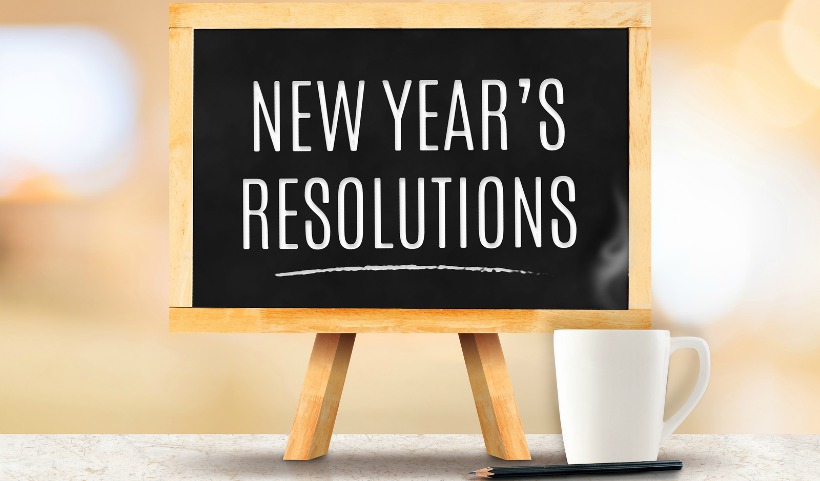Whether it’s because of all the money being spent on gifts, the pressure of having to get so much decorating and cooking done, or the volatility of putting dozens of members of a boisterous family together in a small space, the holidays can be downright stressful sometimes.
For people in recovery, holiday stress can be dangerous, pushing them even closer to having a relapse. Fortunately, there are ways for people in recovery to get through the holiday season unscathed, including making plans for a recovery-related New Year’s Eve. Below is a list of recovery-related New Year’s resolutions that people can make to keep them inspired as they kick off their new year.
Mend A Tarnished Relationship
When users are in active addiction, they make choices and behave in ways that are not only harmful to themselves but also their loved ones. This can be close family members, friends that one has known since grade school, a significant other, classmates or colleagues, or someone else. As such, after getting sober, people in recovery will often realize that they have several relationships with people that were damaged when they were using. A great New Year’s resolution for a person in such a situation is to mend that relationship or relationships, which could end up adding more people to one’s recovery network. It’s important for the different types of health, such as social, mental, and emotional health.
Read A Recovery-Focused Book
Reading a book that offers helpful insight or tips into alcoholism or drug addiction recovery is a great New Year’s resolution. If you read a great deal, you might consider challenging yourself to read several recovery-related books throughout the year.
Start An Exercise/Jogging Routine
Aside from the apparent health benefits of a regular exercise routine, some people say people who are in recovery from addiction can benefit from jogging. Sometimes referred to as “recovery runs,” there are even communities in which groups of people will meet up and go on group recovery runs. Alternately, a person could get a gym membership—the cost of gym memberships has become very reasonable in recent years—and create a more diverse exercise regimen. When you exercise, your body releases endorphins and other chemicals and hormones that improve mood and make you feel better overall.
Write ‘Thank You’ Letters
If a person has received any assistance from someone—whether financial, moral, or otherwise—recently or during their period of recovery, it would be a good idea to write a thank you letter or send a thank you card to that person. It’s an easy way to express how appreciated they are. If you have a lot of people who are deserving of thank you sentiments, a good New Year’s resolution could be to send a thank you card to someone deserving each month, which would total 12 over the year.
Keep A Journal Daily
Journaling is a tool many counselors and psychotherapists use because chronicling one’s day-to-day life can help people healthily process their thoughts and emotions. For one thing, writing in a journal is much like therapy; the person gets to vent thoughts or feelings onto the pages of the journal that he or she would be too self-conscious or inhibited to share to another person. Additionally, writing it all out can make things clearer, helping people to gain perspective about things that had happened in the past. Therefore, starting a journal would be a great, simple, and perhaps therapeutic New Year’s resolution for someone in recovery.
Learn A New Skill Or Hobby
Self-improvement is a common theme when it comes to New Year’s resolutions. In particular, getting a gym membership and getting into shape is probably the most common, but self-improvement doesn’t always have to be physical. For instance, a person could take classes at a local community center to learn a foreign language, which many people have found to be more enjoyable when lacking the pressure of an academic setting. Alternately, one might choose to learn a new skill or trade, whether it’s pottery, sewing, cooking, or otherwise.
Make Time For Community Service
One of the best feelings is the one you get when you help someone, especially someone who is in need. Even when one’s situation isn’t very good, selflessly helping someone else really puts one’s own experiences into perspective. This is a resolution that’s simple but packs quite a punch. There are so many ways to get involved in community service. Consider reading to a child, organizing a food or clothing drive or volunteering with a school or shelter and help make a difference in someone’s life.
Get Involved With A Support Group
If you’re not already attending support group meetings, you might choose to make finding and attending support group meetings your New Year’s resolution. Whether you’ve completed an addiction treatment program or not, support groups have shown to be effective as a primary means of recovery or as a form of sustained recovery and aftercare. If you’re already attending support groups, you could always become more involved by taking on some responsibilities with regard to arranging or facilitating or even leading meetings.
Need Help With Your Recovery?
Sometimes it takes more than recovery-related New Year’s resolutions to commit to sobriety. If you or someone you love would benefit from speaking with one of our experienced recovery specialists, call Delphi Behavioral Health Group or connect with one of our specialists online. We’re available around the clock to help you or your loved one take the first steps on this journey toward happiness, health, and fulfillment.

